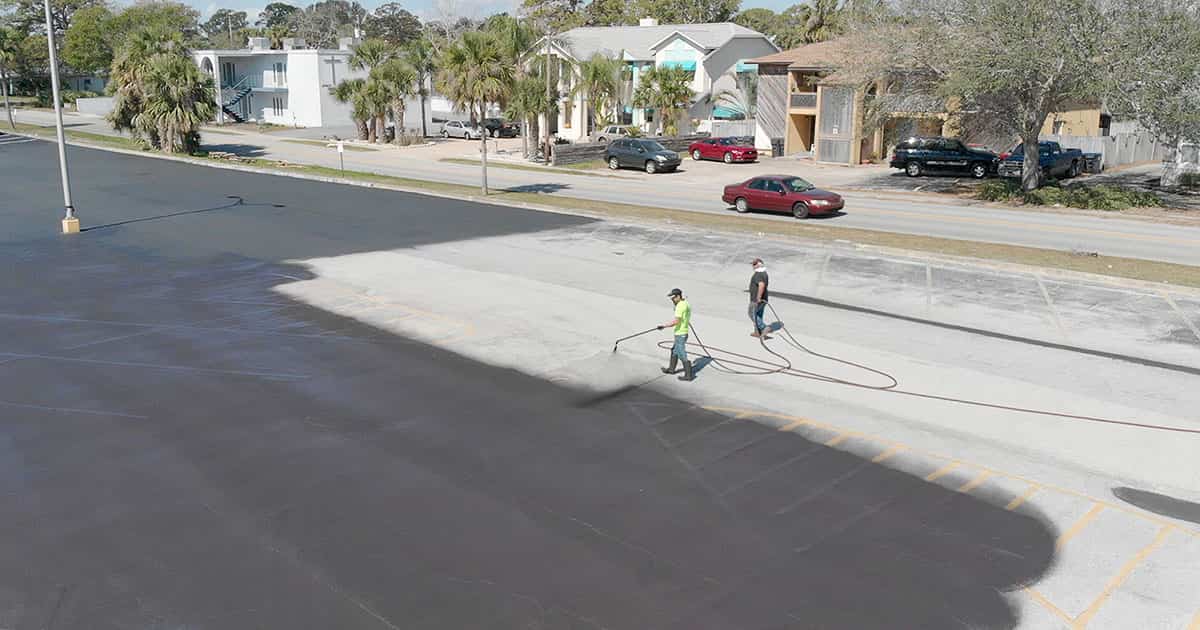Raise Pavement Performance: Cold Mix Asphalt Sealing Strategies
Raise Pavement Performance: Cold Mix Asphalt Sealing Strategies
Blog Article
Cold Mix Asphalt Vs. Hot Mix Asphalt: Which Is Right for You?

Make-up Distinctions
Cold mix asphalt is generated by emulsifying the asphalt binder with water and an emulsifying agent prior to mixing it with aggregate. The warm mix asphalt production process includes warming the aggregate and asphalt binder independently prior to combining them at the asphalt plant.
In addition, cold mix asphalt often tends to be less thick and a lot more versatile than warm mix asphalt. This flexibility makes it better matched for locations with higher degrees of movement, such as driveways or roadways with rush hour. On the other hand, warm mix asphalt is known for its high toughness and resistance to rutting and cracking, making it a favored option for highways and high-traffic roads where longevity is essential.
Installation Process Differences
The procedure of installing cool mix and warm mix asphalt exhibits significant variations in their treatments and demands. In comparison, hot mix asphalt requires an extra elaborate installation process. Due to the heating requirements, warm mix asphalt setups are normally lugged out by specialists with specialized tools, making sure a more irreversible and structurally audio result.
Longevity and Long Life Variables
When thinking about asphalt alternatives, longevity and longevity are critical elements to review for long lasting pavement performance. Warm mix asphalt (HMA) is understood for its outstanding sturdiness and longevity.
In regards to durability, HMA typically outmatches CMA because of its superior toughness and resistance properties. HMA sidewalks have a longer solution life, calling for much less frequent fixings and maintenance, which can equate to set you back financial savings in the long run. Furthermore, HMA pavements are a lot more easily adjustable to meet particular job requirements, additionally enhancing their longevity.
Cost Factors To Consider
Considering the economic implications is a critical aspect when examining the selection between warm mix asphalt (HMA) and cool mix asphalt (CMA) for pavement jobs. While the first price of hot mix asphalt is normally greater than that of cold mix asphalt, HMA commonly gives a more economical remedy in the future due to its remarkable durability and longevity. HMA is understood additional hints for its capability to hold up against rush hour tons and rough weather conditions, decreasing the requirement for constant fixings and upkeep. On the various other hand, cool mix asphalt is more budget friendly upfront but may require more frequent patching and resurfacing, leading to higher maintenance costs over time.
In enhancement to product expenses, it's vital to think about the expenses connected with installation and upkeep when comparing HMA and CMA. HMA typically requires customized devices and competent labor for proper installment, which can affect overall task expenses. Conversely, CMA is less complicated to function with and can frequently be used utilizing simpler strategies, potentially decreasing setup expenses. Ultimately, the decision look at this site in between HMA and CMA need to take right into account not just the first price but also the long-term monetary ramifications to figure out the most affordable choice for the particular sidewalk task.
Environmental Impact Comparison
Contrast of the ecological influences between warm mix asphalt (HMA) and click reference cool mix asphalt (CMA) reveals unique distinctions in sustainability methods. HMA manufacturing needs high temperatures, leading to raised power intake and greenhouse gas discharges.
Moreover, the usage of CMA typically involves recycling existing asphalt sidewalk, promoting resource preservation and reducing the quantity of waste sent to garbage dumps. This recycling facet additionally boosts the sustainability of CMA compared to HMA. In general, when taking into consideration the environmental impact, CMA becomes a much more environmentally sustainable selection due to its lower energy needs, lowered exhausts, and the capacity for recycling existing products. By choosing CMA over HMA, roadway construction jobs can add favorably to ecological conservation efforts.
Verdict
Finally, the option between cool mix asphalt (CMA) and warm mix asphalt (HMA) depends upon numerous aspects such as composition, installment process, durability, long life, price, and ecological impact. asphalt repair. While CMA offers a fast and economical solution for minor fixings, HMA ensures exceptional durability and durability for rush hour areas. Consider these factors meticulously to determine which type of asphalt is the right option for your paving needs

Considering the economic effects is a crucial aspect when assessing the choice between warm mix asphalt (HMA) and cool mix asphalt (CMA) for pavement projects. While the preliminary cost of hot mix asphalt is generally greater than that of chilly mix asphalt, HMA commonly supplies a more cost-efficient service in the long run due to its remarkable sturdiness and durability. angle parking.Comparison of the environmental impacts in between hot mix asphalt (HMA) and cool mix asphalt (CMA) reveals unique differences in sustainability practices.In conclusion, the choice in between cold mix asphalt (CMA) and warm mix asphalt (HMA) depends on different aspects such as composition, installation process, sturdiness, durability, cost, and ecological impact
Report this page